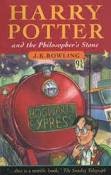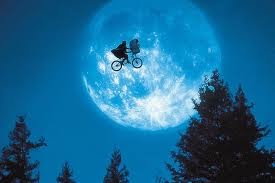First of all, keep it simple. It's like a query, but with an ending.
 |
| pinterest.com |
Compare it to making soup; throw all the stuff in, let it simmer, reduce and keep reducing until it's done.
Step 1. Start by organizing your story in fifteen sentences. I like to use Blake Snyder's beat sheet.
Step 2. Trim it down. Be ruthless. Subplots can go. Focus on the main character's journey. They should learn something by the end of the novel.
Step 3. Have someone who hasn't read your book go over the synopsis. It should make sense to them with a clear idea of the story. Surprisingly, a theme you never intended, will usually become obvious once you draw up your synopsis.
As an example, here's a synopsis of Harry Potter and the Philosopher's Stone, which I trimmed down from the Plot Like a Pro post.
Ten-year-old Harry Potter lives with his spiteful Aunt and Uncle, and abusive cousin. He is repeatedly reminded how lucky he is to have a roof over his head, despite the fact his parents had the audacity to get killed in a car accident when he was an infant.
But when mysterious letters keep arriving for Harry, his Uncle isn't upset, he's downright terrified. One night, a massive man with a woolly coat and beard arrives to announce that Hogwarts School of Witchcraft and Wizardy is waiting for Harry's reply.
Harry is stunned to learn the true nature of his parent's death at the hands of an evil wizard named Lord Voldemort, and as a young wizard, he's due to start his magical education at Hogwarts.
Harry fears that he will not fit in, having never been exposed to magic. He is befriended by a stuttering, Professor Quirrell. During the sorting ceremony, Harry chooses to be in Gryffindor as opposed to Slytherin—the house which Lord Voldemort was placed as a student.
Harry learns a magical item that grants immortality, The Philosopher's Stone, has gone missing. After a Slytherin student tricks Harry into a midnight duel, he discovers a trap door guarded by a three headed dog and he speculates what's being protected.
Harry is pleased to discover he's a natural at Quidditch, a football style game played on broomsticks, and he enjoys the admiration from his classmates.
Having never been given presents, Harry has the best Christmas at Hogwarts with his new friends. He anonymously receives an invisibility cloak, which enables him to sneak around looking for clues about the trapdoor. Instead, he finds 'the mirror of erised'. In the reflection of the magical glass, Harry sees himself with his parents. He forgets about his real friends, choosing to spend all his time looking into the mirror.
While serving detention in the forbidden forest, Harry witnesses the murder of a unicorn and is saved by Firenze, one of the centaurs, who foretells that Lord Voldemort will once again rise to power. Harry realizes the man who murdered his parents will be coming for him next.
Fearing Snape, the head of Sytherin and the mean spirited potions master, is going to steal the Philosophers Stone to make the elixir of life for Lord Voldemort, Harry and his two best friends go down the trapdoor, hoping to grab it first.
After passing harrowing tests of skill through a series of chambers, Harry is the last one left to find the stone. With only a first year's knowledge of magic, he must face Snape alone. But Harry discovers Professor Quirrell is the real villain at Hogwarts who has been helping Lord Voldemort.
Knowing his parents died saving him, Harry feels overwhelming courage and finally believes in the power of their love. Harry defeats Quirrell (and Lord Voldemort) by using the mirror of erised.
Harry recuperates and accepts magic as his true destiny. The friends he's made at Hogwarts are his real family, and that he will never be alone again.
What are some of your tips to writing a synopsis?
Congratulations, you made it to the end of the post. Enjoy this link to a fabulous recipe for chicken stew with butternut squash.













